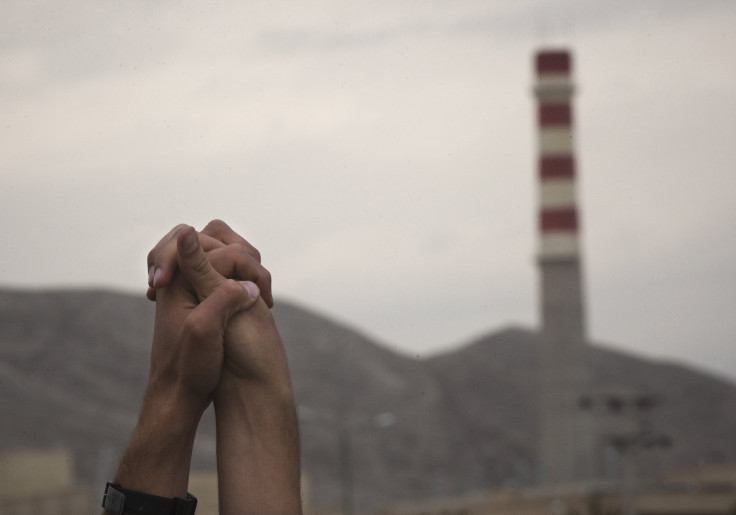Iran Nuclear Accord Progresses As Iran Agrees To Slow Down Nuclear Program And US, P5+1 Prepare To Lift Sanctions Worth About $7B

The Joint Plan of Action, as the deal between Iran, U.S., and five other world powers aimed at slowing down Iran’s ambitions to possess a nuclear weapon in exchange for easing economic sanctions worth about $7 billion, will go into effect from Jan. 20.
“As of that day, for the first time in almost a decade, Iran’s nuclear program will not be able to advance, and parts of it will be rolled back, while we start negotiating a comprehensive agreement to address the international community’s concerns about Iran’s program,” U.S. Secretary of State John Kerry said, in a statement released Sunday.
According to the agreement's terms, over the next six months, Iran will work toward destroying the entire stockpile of its 20-percent-enriched uranium -- that can be used to make a weapon -- in an effort led by the International Atomic Energy Agency, the statement said.
In return for Iran’s actions, the U.S. and the P5+1 nations, which include China, Russia, Britain, France and Germany, will unfreeze $4.2 billion worth of Iranian assets held in foreign banks. Iran will receive this amount in regular installments over six months, which could be stopped if Iran fails to comply with the terms of the deal.
A New York Times report, citing the White House, valued the total relief for Iran in economic sanctions between $6 billion and $7 billion.
The deal, which was initially reached in November, has been severely criticized by Iranian hardliners and Israel, and according to media reports, some U.S. lawmakers who also oppose the deal, have threatened to approve further sanctions instead, which President Barack Obama has promised to veto.
Seeking to pacify opposition to the deal within his country, Iran’s deputy foreign minister, Abbas Araghchi, seemed to downplay the terms of the agreement.
“As this game is played in our court, we cannot lose,” he said on Iranian state television on Sunday, according to the New York Times. “Nuclear enrichment is our right.”
"We don't trust them," Araghchi told state television, Reuters reported.
Kerry, in his official statement, noted: “I very much appreciate Congress’ critical role in imposing the sanctions that brought Iran to the table, but I feel just as strongly that now is not the time to impose additional sanctions that could threaten the entire negotiating process.”
Iran’s nuclear program, which the country says is meant only for peaceful purposes, has been a magnet for criticism from the West, and has resulted in severe economic sanctions against the country. However, the election of Hassan Rouhani as president, who is regarded as a moderate, has helped Iran adopt a more conciliatory approach when it comes to nuclear policy.
However, the U.S. sought to highlight the challenges in converting the deal into a long-term pact even as it remains at odds with Iran’s foreign policy, which includes active support for Syria's regime led by Bashar Assad.
And, according to the New York Times report, Kerry has confirmed that the nuclear deal with Iran would be a bigger priority than changing Iran’s position on Syria.
“We are clear-eyed about the even greater challenges we all face in negotiating a comprehensive agreement. These negotiations will be very difficult, but they represent the best chance we have to resolve this critical national security issue peacefully, and durably,” Kerry said in the statement.
© Copyright IBTimes 2024. All rights reserved.












